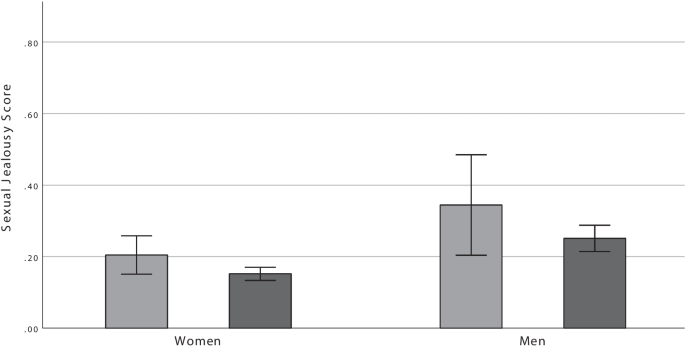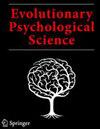Factors that Influence People’s Beliefs About Men’s and Women’s Jealousy Responses
IF 1.5
Q3 PSYCHOLOGY, MULTIDISCIPLINARY
引用次数: 0
Abstract
Abstract This study examines what beliefs people hold about other men’s and women’s reaction to infidelity and how related these beliefs are to one’s own jealousy response and to various socio-cultural influences. This novel approach was examined in a Facebook snowball sample ( N = 1213) who responded to three infidelity scenarios regarding what aspect of infidelity (emotional or sexual) they believed would make men and women more jealous and then what aspect would make themselves more jealous. The results suggest that both men and women believed men would be more upset by the sexual aspect of infidelity and that women would be more upset by the emotional aspect (i.e., falling in love). Own jealousy responses in men and women were strongly associated with beliefs about same-sex responses to infidelity and showed moderate association with beliefs about opposite-sex responses. Self-reported perceptions of cues to infidelity and knowledge from various sources about what (1) may be cues to infidelity and (2) may be typical reactions to infidelity were unrelated to beliefs about men’s and women’s jealousy responses and to own jealousy responses. We discuss whether beliefs about men’s and women’s jealousy responses may be culturally transmitted or more likely involve a dual model consisting of (a) reflection of own jealousy responses with (b) some cross-sex insights into jealousy reactions in men and women. The findings suggest that there may be evolved psychological adaptations for jealousy beliefs that extend to others of same and opposite sex.

影响人们对男女嫉妒反应看法的因素
摘要:本研究考察了人们对其他男性和女性对不忠的反应的看法,以及这些看法与自己的嫉妒反应和各种社会文化影响的关系。这种新颖的方法在Facebook雪球样本(N = 1213)中进行了检验,他们对三种不忠场景做出了回应,即他们认为不忠的哪一方面(情感或性)会让男人和女人更嫉妒,以及哪一方面会让他们自己更嫉妒。研究结果表明,男性和女性都认为,男性会对不忠的性方面感到更不安,而女性会对不忠的情感方面(即坠入爱河)感到更不安。男性和女性的嫉妒反应与同性对不忠的反应强烈相关,与异性对不忠的反应适度相关。自我报告对不忠线索的感知,以及从各种来源获得的关于(1)可能是不忠线索和(2)可能是不忠典型反应的知识,与男性和女性的嫉妒反应以及自己的嫉妒反应的信念无关。我们讨论了关于男性和女性嫉妒反应的信念是否可能是文化传播的,或者更可能涉及到一个双重模型,包括(a)对自己嫉妒反应的反映和(b)对男性和女性嫉妒反应的一些跨性别见解。研究结果表明,可能存在一种进化的心理适应,这种心理适应可以延伸到同性和异性身上。
本文章由计算机程序翻译,如有差异,请以英文原文为准。
求助全文
约1分钟内获得全文
求助全文
来源期刊

Evolutionary Psychological Science
Psychology-Social Psychology
CiteScore
2.60
自引率
13.30%
发文量
33
期刊介绍:
Evolutionary Psychological Science is an international, interdisciplinary journal that publishes empirical research, theoretical contributions, literature reviews, and commentaries addressing human evolved psychology and behavior. The Journal especially welcomes submissions on non-humans that inform human psychology and behavior, as well as submissions that address clinical implications and applications of an evolutionary perspective. The Journal is informed by all the social and life sciences, including anthropology, biology, criminology, law, medicine, philosophy, political science, and the humanities, and welcomes contributions from these and related fields that contribute to the understanding of human evolved psychology and behavior. Submissions should not exceed 10,000 words, all inclusive.
 求助内容:
求助内容: 应助结果提醒方式:
应助结果提醒方式:


